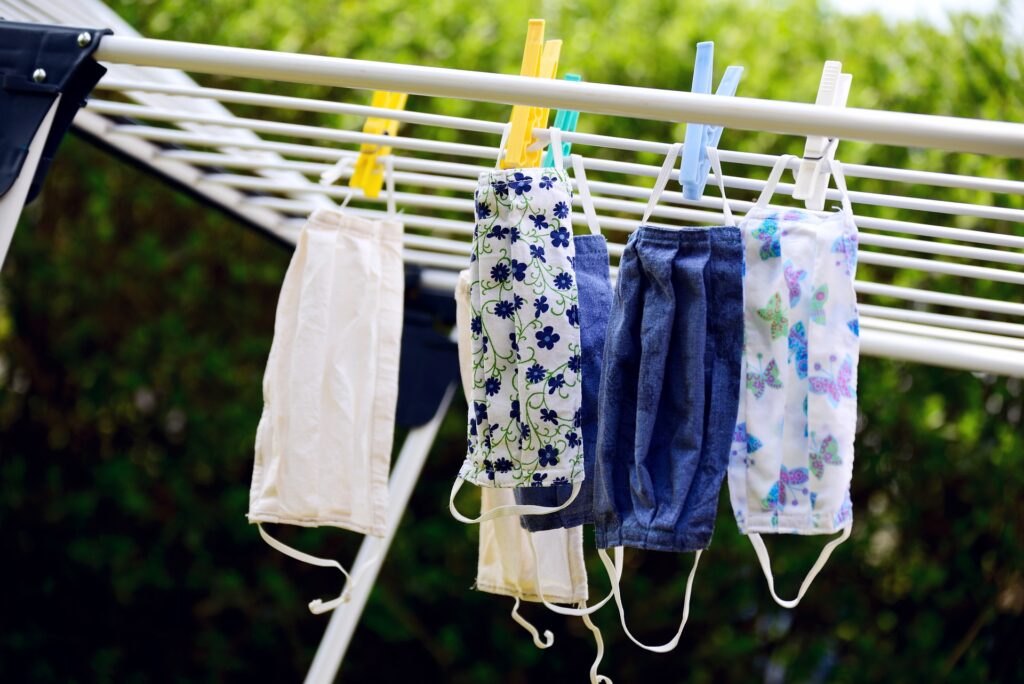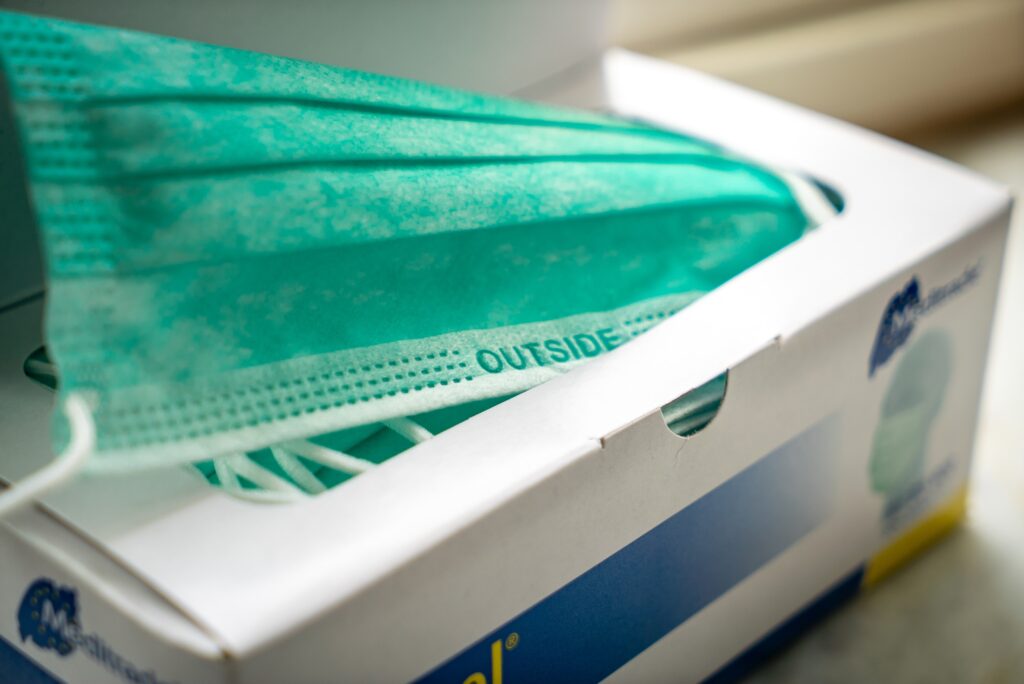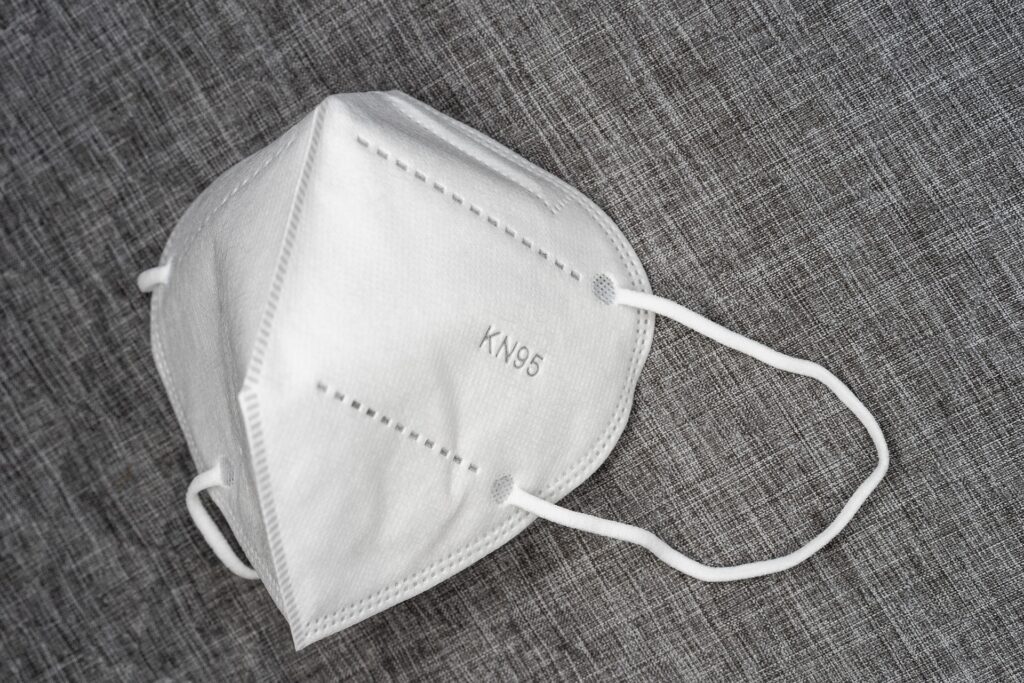Face masks are products that cover the wearer’s nose and mouth. When wearing correctly, masks are good at filtering out pollen and other allergens in the air and preventing individuals from contracting any airborne infectious germs, including the COVID-19 virus. A quality mask is essential in helping slow the spread of the virus and its variants. Properly cleaning and storing the masks will help retain your masks’ maximal protection.

Follow these tips to safely clean and store your masks and remember to always wash your hands after handling or touching a used mask.
Fabric Masks and Face Coverings
Reusable masks and face coverings are made of common textiles such as cotton and may or may not meet any fluid barrier or filtration efficiency levels. They should be washed as soon as they become dirty, or at least daily.
How to clean
In washer and dryer
- Masks can be washed in the regular laundry with regular detergent
- Use the appropriate washer settings according to the fabric label
- After laundering fabric masks, tumble dry them according to the fabric label
By hand
- Wash your masks using hot, soapy water. Scrub the mask for at least 20 seconds, and rinse thoroughly with clean water
- Hang the mask in direct sunlight to dry completely. If that option is unavailable, hang or lay it flat and let it dry completely.
How to store
- If your mask is wet or dirty from sweat, saliva, make-up, or other liquids or substances, keep it in a sealed plastic/silicon bag until you can wash it. Wash wet or dirty masks as soon as possible.
- Keep mask in a dry, breathable bag (such as a paper or mesh fabric bag) to keep it clean between uses.
Surgical Masks

A surgical mask is a loose-fitting, disposable mask that creates a physical barrier between mouth and nose and potential contaminants such as large respiratory droplets.
Surgical masks are not intended to be used more than once. Research has shown that their bacterial filtration efficacy decreases significantly after wearing for 4 hours. Please DO NOT attempt to wash and sanitize surgical masks. It will minimize the masks’ effectiveness. If your surgical mask is damaged or soiled, or breathing through the mask becomes difficult, you should discard it and replace it with a new one.
N95/KN 95 Masks

An N95/KN95 mask is designed to achieve a very close facial fit for adults and very efficient filtration of airborne particles. Please DO NOT attempt to wash your N95/KN95 masks. It will reduce the masks’ effectiveness.
There’s little data on how long the COVID-19 virus and its variants remain viable (retain their ability to infect people) on masks. A recent study indicates that it took 48 hours for the COVID-19 virus to be completely non-viable on cardboard. CDC has not published any recommendations for sanitizing N95/KN95; however, public health experts recommend leaving used N95/KN95 masks to dry for 24 to 48 hours in a breathable bag, like a paper bag, to store and allow time for the virus to become inactivated before the next use.
It is time to discard your N95/KN95 mask when you find its fit to your face is loose, even if the mask is not soiled or damaged. Every time you put a mask on or take it off, the straps tend to stretch. This can result in a looser fit with the face and compromise the function of the mask. The CDC recommends using an N95 mask no more than five times in healthcare settings, though it does acknowledge that some models can be worn even more as long as it remains a proper fit to your face.
For more information on improving mask fitting:
https://www.cdc.gov/coronavirus/2019-ncov/your-health/effective-masks.html


